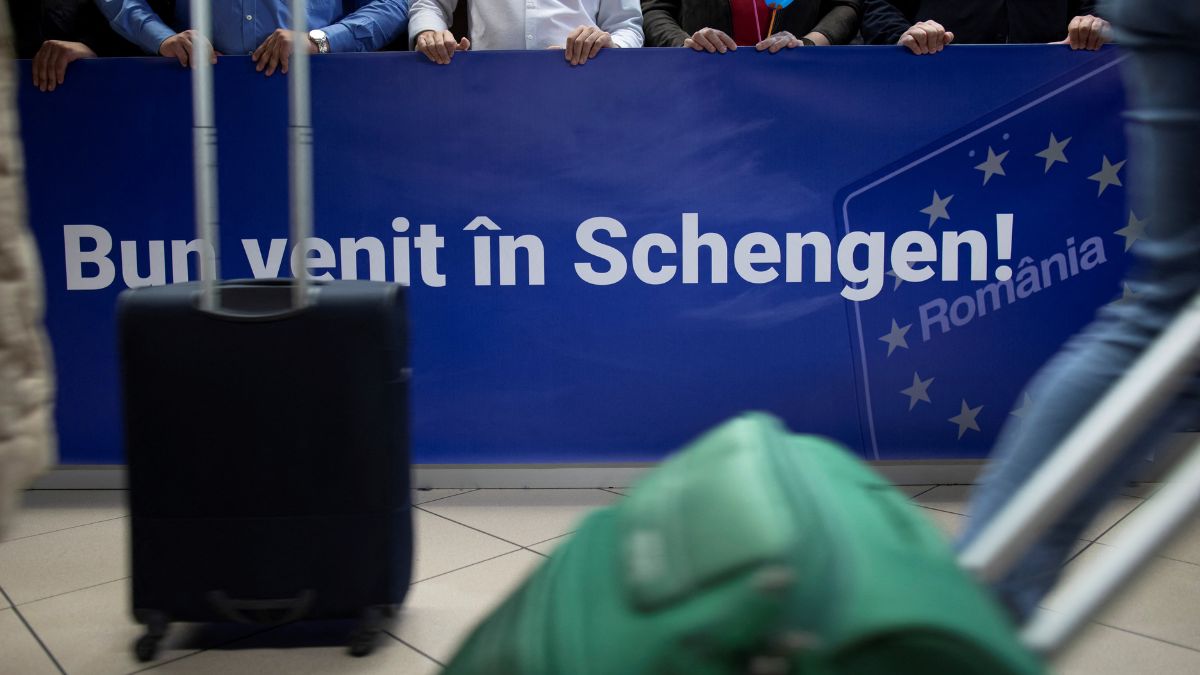The Schengen Area, with its 29 European countries and a population of more than 450 million people, has long been a symbol of European integration and free movement.
As one of the EU’s most significant achievements, the Schengen Zone allows for passport-free travel between its member states.
However, the steady influx of asylum seekers, particularly after the 2015 migration crisis and again in 2023, has led to renewed calls for stricter border controls. The latest figures show that asylum applications in 2023 reached 1.12 million, the highest since 2016, stretching the capacity of local authorities across the EU.
Recent developments in European migration policies, particularly Germany’s decision to reintroduce checks at all its land borders, have raised concerns over the future of the Schengen Area.
How is Germany’s move affecting other Schengen countries?
Germany’s recent move to tighten checks at its borders follows a knife attack in Solingen in August, where a Syrian asylum seeker killed three people. The attack, later claimed by the Islamic State, highlighted gaps in the migration system, as the perpetrator had already been ordered to be deported.
Germany’s decision, while seen by some as politically motivated, has sparked widespread criticism. The country’s interior minister, Nancy Faeser, explained the move: “We want to further reduce irregular migration,” stressing that it was essential to protect against terrorism and serious crime.
However, Poland’s Prime Minister, Donald Tusk, called it “unacceptable” and claimed it was effectively a “de facto suspension of the Schengen agreement on a large scale.” Austria, meanwhile, announced it would refuse to take back any migrants turned away by Germany.
Greek Prime Minister Kyriakos Mitsotakis also echoed the sentiment saying that a German plan to impose tighter checks at its land borders amounted to unilaterally scrapping Europe’s open-border Schengen zone and would burden frontline states such as Greece.
“The response cannot be unilaterally scrapping Schengen and dropping the ball to countries which sit on Europe’s external borders,” he said.
The European Commission has responded cautiously, pointing to the Schengen Borders Code, which allows for temporary internal border controls in case of serious threats to public order or internal security.
However, it remains to be seen whether Germany’s measures will comply with EU law in the long term, as border checks are supposed to be both necessary and proportionate.
How serious is this move?
This is not the first time border controls have been introduced within the Schengen Area. In fact, since 2006, member states have submitted 441 notifications to reinstate controls temporarily.
While only 35 of these were filed before 2015, the numbers surged after the 2015 migration crisis, and eight countries, including Germany, currently have some form of checks in place. The Schengen Borders Code defines these controls as a last resort, but many argue they are becoming the norm rather than the exception.
Dr. Saila Heinikoski, a senior researcher at the Finnish Institute of International Affairs, told Euronews: “I doubt these [Schengen] countries are willing to remove their border control in the near future due to the signal it would send.”
Indeed, some believe that these measures serve more as symbolic gestures to reassure domestic populations rather than effective deterrents against irregular migration. As Marcus Engler of the German Centre for Integration and Migration Research remarked, “The intention of the government seems to be to show symbolically to Germans and to potential migrants that the latter are no longer wanted here.”
Is this a sign of the changing political wave in Europe?
The Solingen attack and the subsequent rise in far-right electoral successes, notably for the Alternative for Germany (AfD) party, have put immense pressure on Chancellor Olaf Scholz’s government.
The AfD recently gained historic results in two eastern German states, while the Social Democrats, Scholz’s party, face a likely defeat in the next federal elections. Germany is not alone in this; far-right parties across Europe have gained ground as migration remains a contentious issue.
Austria, Denmark, Italy, Norway, Sweden, and Finland have also instituted temporary border checks, citing a variety of reasons from terrorism to the war in Ukraine. Denmark’s interior minister pointed to terror threats arising from the conflict in Gaza and Russian espionage risks. France, too, has justified border controls by pointing to heightened terrorism risks.
However, these measures may come at a significant economic cost. A 2016 report by the Bertelsmann Foundation estimated that the reintroduction of internal border checks could cost Europe €470 billion in lost growth over a decade. While these controls provide short-term political gains, the long-term impact on the Schengen Area and EU unity remains uncertain.
Will Schengen survive?
The debate surrounding Schengen’s future has intensified with Germany’s recent decision. The European Stability Initiative’s Gerald Knaus warned on X: “Internal border controls that are intended to have any effect mean the end of Schengen.”
The implications of border controls extend beyond migration issues. With over 240,000 people commuting daily from neighbouring countries to Germany for work, these measures could disrupt trade and cross-border labour markets.
Hungary’s Prime Minister Viktor Orbán, who has long been critical of EU migration policies, welcomed the German move with a sarcastic post: “Scholz, welcome to the club! #StopMigration.”
#Germany has decided to impose strict border controls to stop illegal migration. @Bundeskanzler Scholz, welcome to the club! #StopMigration
— Orbán Viktor (@PM_ViktorOrban) September 10, 2024
On the other hand, Greek PM Mitsotakis voiced concerns, stating that it would be wrong to revert to a “logic of ad hoc exemptions from the Schengen agreement.”
Alberto-Horst Neidhardt from the European Policy Centre stated that while Schengen is not on the verge of collapse, the idea that recent reforms could preserve its borderless nature is “an illusion.” He added that the Schengen Area’s future will likely be “marked by a high degree of malaise and uncertainty."
With inputs from agencies


)

)
)
)
)
)
)
)
)



